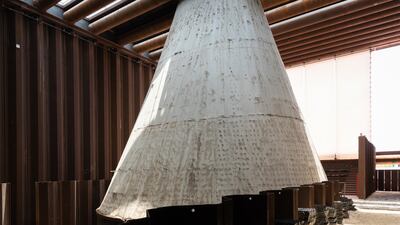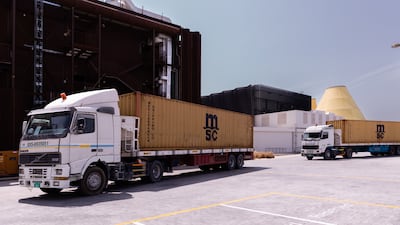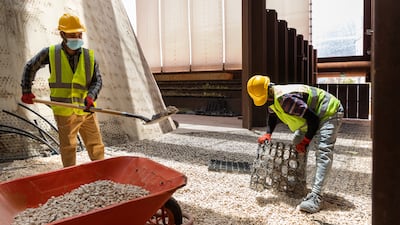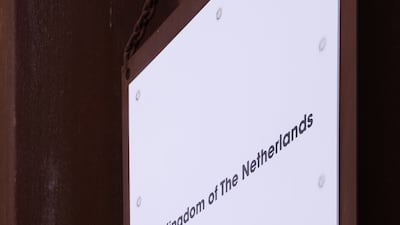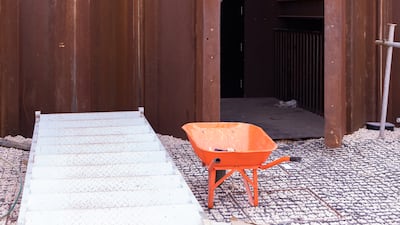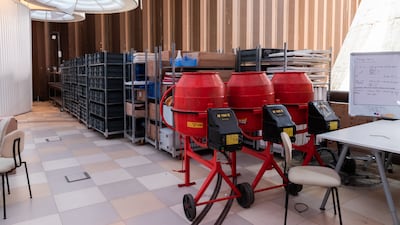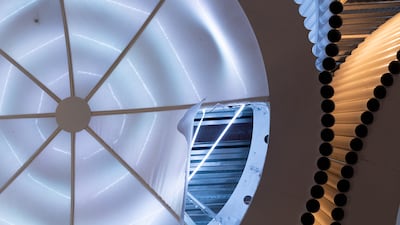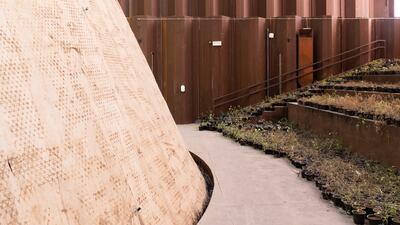New images show the Netherlands pavilion at Expo 2020 Dubai being dismantled as workers clear the area ahead of is redevelopment.
The Dutch pavilion was built in such a way that the materials used during its construction could be reused following the end of the six-month expo event in Dubai.
It was built with the focus on sustainability, given that it was only ever going to be used over a six-month period.
“The pavilion was designed with circularity in mind. This is reflected in the choice of materials used for all components, including structural elements,” said Maarten Veerman, project manager at Witteveen+Bos, part of a consortium of four companies who designed and built the structure.
“Our team worked with a structure of steel sheet piles and steel tubes, as those materials are widely available and known for their reusability.
“Sheet piles are often used in temporary structures and many companies rent them out, contributing to the project’s fully sustainable nature.”
The steel tubes and sheet piles will be used for other construction projects across the UAE, officials confirmed.
The plot itself will end up looking just as it did before the pavilion was constructed – an empty spot of desert land.
Desert sand was excavated from the site when work on its construction began in 2018.
The sand was used for filling the double sheet piles, whilst also being used as temporary insulation material.
That sand will then be poured into the plot again once the dismantling is complete.
A giant cone blanketed with edible plants, cress and mushrooms was the main attraction of the Netherlands pavilion.
A mushroom farm was housed inside the cone, which displayed how herbs and food could grow in the desert, will now become the property of local entrepreneur Dima Al Srouri, a lecturer at Abu Dhabi’s Sorbonne University.
Dozens of companies and thousands of residents will move to the Expo legacy site, known as District 2020, from autumn 2022.
Last week, German engineering giant Siemens said it will relocate its local office and hundreds of employees to the site, which is served by the metro, nearby airport and a new bus service.
